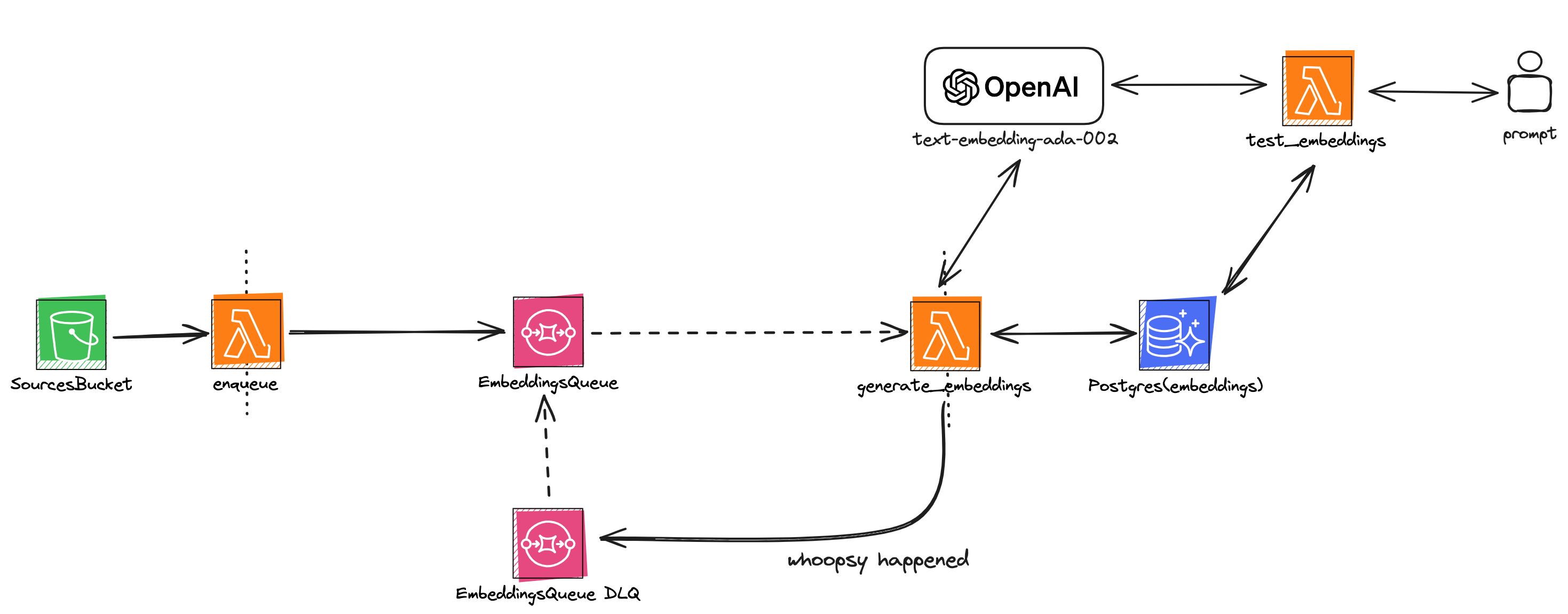This was generated using the Serverless Framework AWS Python template.
This is an example of a way to generate and store embeddings for new documents in an S3 bucket usings Lambda, SQS, Postgres(pgvector) and OpenAI(text-embedding-ada-002).
- serverless-python-requirements
- serverless-lift
- Docker
- NPM
Install the Serverless Framework:
npm install -g serverlessInstall the dependencies:
npm installAdd your environment variables to a .env file in the root of the project.
cp .env.local .env.dev
cp .env.local .envNote: You need to install the pgvector extension in your RDS instance. We are also not indexing the vectors in this example.
CREATE EXTENSION vector;In order to deploy the example, you need to run the following command:
$ serverless deploy
After running deploy, you should see output similar to:
Deploying serverless-embeddings-generator to stage dev (us-east-1)
✔ Service deployed to stack serverless-embeddings-generator-dev (70s)
functions:
enqueue: serverless-embeddings-generator-dev-enqueue (25 MB)
testEmbeddings: serverless-embeddings-generator-dev-testEmbeddings (25 MB)
EmbeddingsQueueWorker: serverless-embeddings-generator-dev-EmbeddingsQueueWorker (25 MB)
SourcesBucket: serverless-embeddings-generator-sourcesbucket
EmbeddingsQueue: https://sqs.us-east-1.amazonaws.com/....After successful deployment, you can invoke the deployed function by using the following command:
sls invoke -f testEmbeddings --data "hello world" Which should result in response similar to the following:
{
"results": [
[
"hello there friend",
"source_of_doc",
0.90
],
}In case you would like to include third-party dependencies, you will need to use a plugin called serverless-python-requirements. You can set it up by running the following command:
serverless plugin install -n serverless-python-requirementsRunning the above will automatically add serverless-python-requirements to plugins section in your serverless.yml file and add it as a devDependency to package.json file. The package.json file will be automatically created if it doesn't exist beforehand. Now you will be able to add your dependencies to requirements.txt file (Pipfile and pyproject.toml is also supported but requires additional configuration) and they will be automatically injected to Lambda package during build process. For more details about the plugin's configuration, please refer to official documentation.
